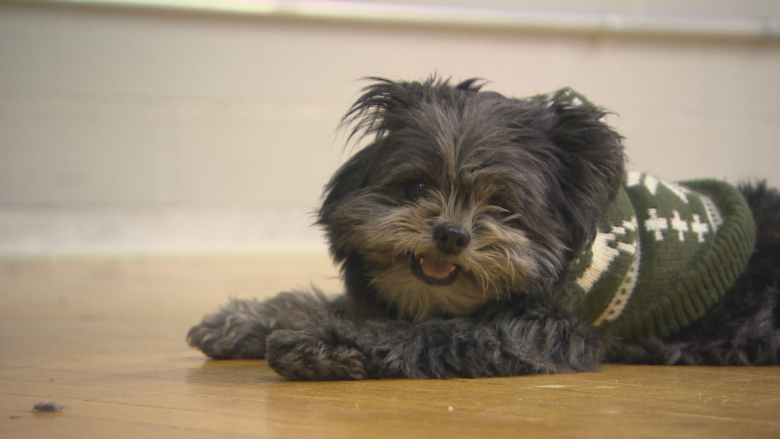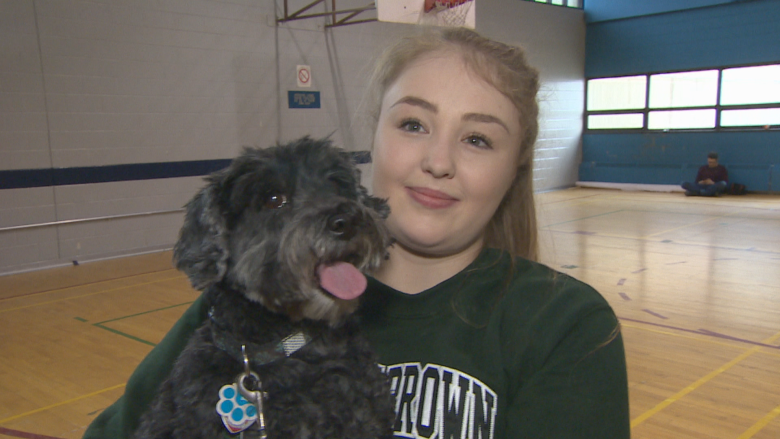CAMH's Therapy Dog Evaluation Day aims to expand hospital's Pet Therapy Program
Jonathan John spent a month as an inpatient at the Centre for Addiction and Mental Health (CAMH) at a difficult point in his life.
"People came into the hospital feeling that they weren't loved and were neglected and didn't have any support in their lives, and that was myself as well," he told CBC Toronto.
"I felt that the love I was looking for from human interaction was nonexistent or my perception of it was kind of flawed."
John was in the mood and anxiety ward, and between the monotony of interviews and meeting with health care professionals, he says it was the hospital's pet therapy program that really helped him turn things around.
"When I came into the ward and I interacted with the dogs in the pet therapy program, there was nothing but unconditional love, no matter how negative I felt about or how sad I felt about myself," he said. "No matter how bad the day was at the ward itself, these dogs were able to come in and be so excited to hang out with us and play with us."
The benefits of the dogs was something he noticed with other inpatients, too.
"It changed the whole climate and atmosphere in the ward," he added. "The day just one dog showed up, it had a huge impact [on] the floor of the hospital."
Variety of dogs take part
On Sunday, John took the opportunity to give back by helping at CAMH's Therapy Dog Evaluation Day.
The event puts dogs hoping to join the hospital's Pet Therapy Program to the test through simulations of what therapy dogs typically experience in the program.
This program currently has 28 therapy dogs, but that number is expected to grow to 40 in the next year in part because of a $20,000 grant from PetSmart Charities of Canada.
"Our mission is really to bring people and pets closer together and that includes through pet adoption but also through grants to fund pet therapy programs, both here at CAMH and at other hospitals right across the country," Carrie Trembinski of PetSmart Charities of Canada said. "There's quite a variety of dogs. It's really their temperament and disposition that helps them to become a great therapy dog."
John says he was "blown away" by the amount of work that goes into training a therapy dog.
He adds that he's sharing his own mental health story to help others facing challenges in their lives and also recommends the pet therapy program for all of those able to take advantage of it.
"Don't underestimate or neglect the value that pet therapy can have on someone's personal lives and their mental health," he added. "If those dogs weren't there, it either may have not worked out for me, or it would have taken a longer time for me to actually be receptive to my treatment."




